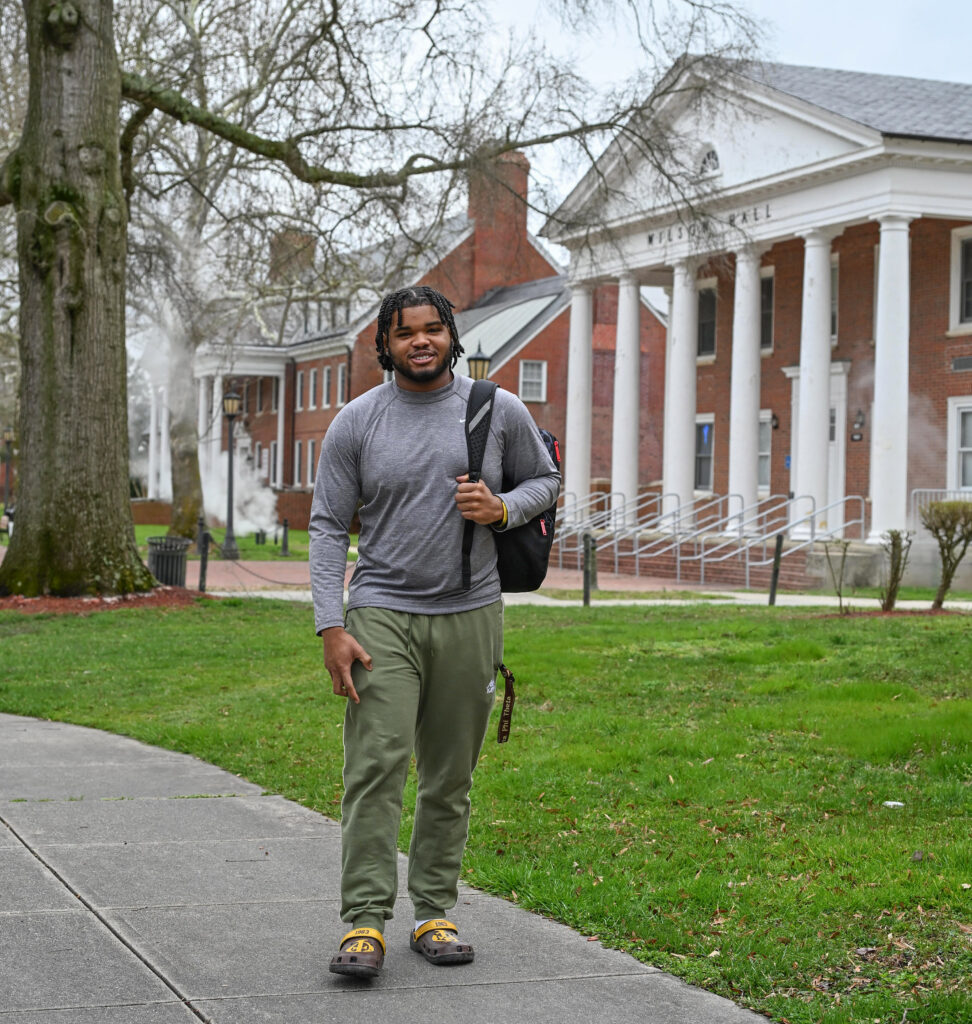Agribusiness graduate will work in food and nutrition at USDA

Jordan Frazier will have a purposeful step when he crosses the stage with some 238 degree candidates during the University of Maryland Eastern Shore’s 137th Spring Commencement. The agribusiness management major from Springdale, Maryland, will be making his way toward a job with the U.S. Department of Agriculture’s Food and Nutrition Services in Alexandria, Virginia. His ultimate mission: to make a difference in the nation’s food deserts.
Frazier’s recent internship with the agency’s human resources department, arranged through his association as a USDA 1890 National Scholar and UMES Land-grant Scholar, was a catalyst for the job offer and first step toward achieving his career goals.
“When I came in as a freshman, I didn’t realize all the opportunities (aside from the obvious financial assistance) that being a land-grant scholar would provide throughout my collegiate career,” Frazier said. His eyes were opened to the possibilities through this along with his extra-curricular experiences, including being a member of the university’s Minorities in Agriculture, Natural Resources and Related Sciences chapter.
At the encouragement of mentors, Frazier shifted his interest from business administration to agricultural business, which, he said, expanded his career options.

“Agriculture is everything from the food you eat to the clothes you put on your body,” he said as UMES’ Mr. MANRRS ambassador in an interview with a WMDT-TV 47 during UMES’ Nov. 30 groundbreaking ceremony for the Agricultural Research & Education Center. Speakers from the USDA and Maryland Legislature hit home the importance of agriculture in feeding the growing population and UMES’ role in training and recruiting a diverse future agricultural workforce.
Frazier represents that hoped-for future — talented young minds from all walks of life championing the nation and world’s food security needs.
Living in Somerset County, a low-income and low-access census tract, while pursuing his degree called Frazier’s attention to community needs and some of the factors that make a food desert by the USDA’s criteria. Limited access to healthy food sources, he learned, can be attributed to distance from a grocery store, the number of stores in an area, the availability of private or public transportation, and individual or neighborhood income levels.
“It’s just really important to see people like us in this field to make a difference,” he said.
Gail Stephens, agricultural communications, University of Maryland Eastern Shore, School of Agricultural and Natural Sciences, gcstephens@umes.edu
Photos by Todd Dudek, agricultural communications, University of Maryland Eastern Shore, School of Agricultural Sciences, tdudek@umes.edu

